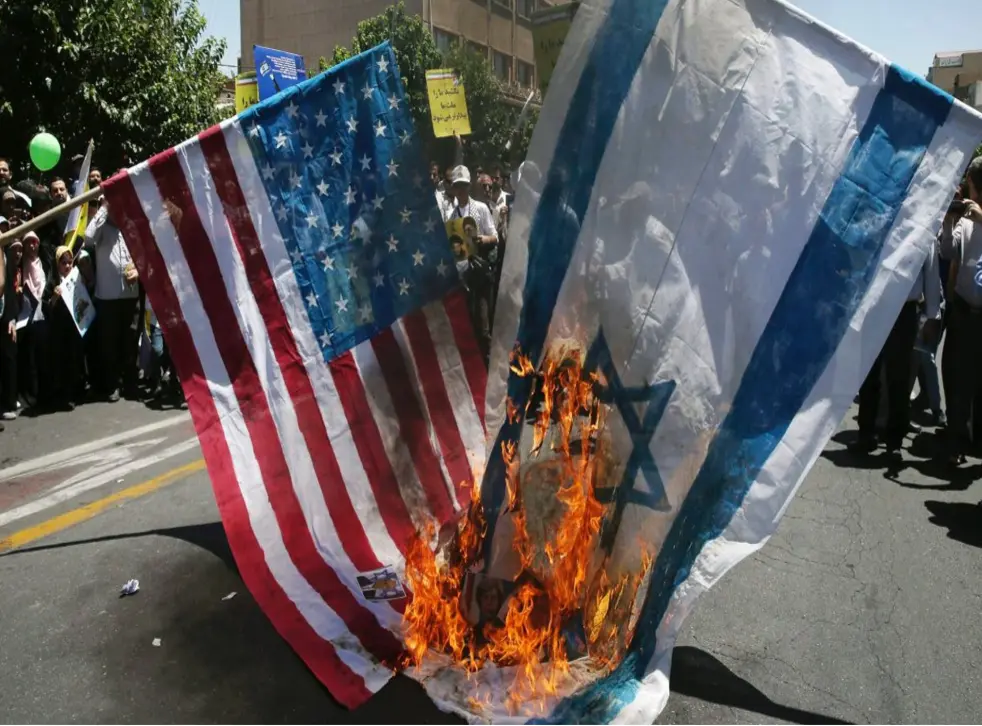I am embarrassingly uneducated about the region. Please help me be slightly less ignorant.
its bad , the hole new goverment comes from london and the first thing they approved was a US Navy Base …

It’s bad. Basically a CIA coup: https://asiatimes.com/2024/08/bangladesh-as-color-revolution-on-indias-doorstep/

I’m not saying that it isn’t a CIA coup, but the level of proof that this article gives is weak as feck:
From whatever I have pieced together, it appears that adequate funding has been provided to the Jamaat-linked individuals operating in Bengal since at least last year and there had been some speculation that the US had funded a number of Islamist politicians who stood (and mostly won) during the Indian elections, opposing the candidates of India’s ruling BJP.
Honestly maybe it is a CIA coup, I guess time will tell. As I stated in the last thread about this, I just don’t trust non-leftist authors making such unsourced judgements about things.
I don’t think you’re going to find a smoking gun here, but there are plenty of signs and also a larger pattern in the region for this sort of thing. This is from a great Vijay Prishad article posted elsewhere here:
Over the course of the past decade, South Asia has faced significant challenges as the United States imposed a new cold war against China. Initially, India participated with the United States in the formations around the US Indo-Pacific Strategy. But, since the Russian invasion of Ukraine in February 2022, India has begun to distance itself from this US initiative and tried to put its own national agenda at the forefront. This meant that India did not condemn Russia but continued to buy Russian oil. At the same time, China had—through the Belt and Road Initiative (BRI)—built infrastructure in Bangladesh, Nepal, Pakistan, and Sri Lanka, India’s neighbors.
It is perhaps not a coincidence that four governments in the region that had begun to collaborate with the BRI have fallen, and that their replacements in three of them are eager for better ties with the United States. This includes Shehbaz Sharif, who came to power in Pakistan in April 2022 with the ouster of Imran Khan (now in prison), Ranil Wickremesinghe, who briefly came to power in Sri Lanka in July 2022 after setting aside a mass uprising that had other ideas than the installation of a party with only one member in parliament (Wickremesinghe himself), and KP Sharma Oli, who came to power in July 2024 in Nepal after a parliamentary shuffle that removed the Maoists from power.
Seems reasonable enough. (sorry for the brief reply, I’m a bit busy atm)
Removed by mod
The term is often used for all semis clandestine for operations of the US government. The CIA itself has had various open spinoffs that continue to operate. For example, the National Endowment for Democracy, to which a few interim government functionaries have ties, is a CIA cutout.
The backgrounds of those in the interim government body are… conspicuous. One must ask why those people and not others. Why no trade unions. Why those students. The military leaders responsible for the coup, leveraging the student and labor protests to do it, are of course proximally making these decisions, but their absurdly pro-American appointments mean taking orders from the US. Those connections would not be new.
It has the trappings of a color revolution, which is proper CIA territory. The title of the article uses this term.
Removed by mod
I take it you’re not familiar with what color revolutions really are. Which part of the US government do you think would be involved in pushing regime change like this?
A field trip for the kids at Camp Dropshot, a counterrevolution themed CIA childrens outreach program jointly funded by generous donations from Berkshire Hathaway and JPMorganChase that focuses primarily on teaching children how to be compradors and to spin civil unrest into regime change.

I don’t think this is a fair response. @jadelord@discuss.tchncs.de’s statement was correct. We don’t need to read non-leftist authors so unskeptically.
Removed by mod
The current favored carekeeper leader is a guy who got the Nobel Peace Prize for microloans. Make of that what you will.
HOW DOES THAT GET YOU A PEACE PRIZE WTF

You introduce a measure of economically preying on the poor even harder than before, and that is what Nobel Peace Prize is all about.
They should give me a Nobel peace prize for not posting my micropenis
The new government will almost assuredly be worse than the old one but the old one sucked pretty bad too. I give them 5 years tops before there is another coup and that one won’t be used to install neo-liberals
The only thing that I’ve read anywhere that I respect is from Vijay Prashard. A super tldr is that it’s mixed.
China really needs to be more proactive in its foreign policy. Losing three south Asian Ally’s to US proxies is not a good look.
deleted by creator
If the USSR is too strong, side with the US to weaken the USSR.
this policy is probably the thing most singularly responsible for the coming collapse of global civilisation btw
Truly
TLDR: China is more naive when it comes to the US empire and its desires than the USSR
Very interesting and concise , thank you
Mao developed the Three Worlds Theory to distance China from the first (US and the USSR) and the second (developed countries of the Global North) worlds
Don’t you mean ‘the first (US and the developed countries of the Global North) and the second (the USSR and the rest of the Warsaw Pact) worlds’?
deleted by creator
The Chinese government knows that a offensive political strategy will have american carriers arriving at their shores in two days max, so they try to “uphold international law” to give the americans less leeway to attack and possible have more cards to deal with the taiwan issue.
Bad government replaced with an even worse one, as far as I understand.
Since 1981 you’ve had power going back and forth between Sheikh Hasina’s Awami League party (social democrats who figured prominently in the war for independence but have been thoroughly compromised by neoliberalism) and Khaleda Zia’s Bangladesh National Party.
The recent student protests could probably be characterized as Sheikh Hasina being left holding the bag when the chickens of corruption came home to roost, and then doubling down on an unpopular but not very consequential policy. After ~250 died at the hands of police and the protest movement kept growing to a point where it could threaten the operation of the political apparatus, the army did a coup- for the first time in 45 years or so. Then they installed an interim head of state who was a pioneer of microfinance, and were in talks with “all the opposition parties” to form a new government.
There’s plenty more going on underneath the surface that our bulletin bears can embellish.
The policy was not popular, but fairly consequential, assuming you mean the portion of jobs reserved for the descendants of freedom fighters
She also, like a total nutjob, claimed anyone against the policy was a “Razakars”, effectively calling them traitors to the country
People finally had enough of her and her bullshit
I agree this sub makes it seem orchestrated by outside forces, which do meddle, but she did herself in
It’s not like she conjured the policy out of thin air this year. It had stood for a while, there was just a big push this year.
Pushing bioessentialism on veterans in people’s ancestry is cringe, but it’s far from the worst thing that a head of state can do. It’s pretty clear that she had the support of around 40% of the population.
It’s not good though
And when it lead to mass protests they could have relented and said it would be corrected, instead of fighting with a bunch of students worried about their futures
Student protests happen all the time.
Why did Bangladesh experience a full government capitulation, whereas Indonesia a couple years ago did not?
There are external factors that play a huge role here.
Students had tried doing small tasks like organizing traffic a few years ago, they were cracked down on and it worked in Bangledesh
The fear was that they would go from volunteering to correct the flow of traffic to organizing for something political
This time the students were successful
I’m not saying there are no external forces at play, but the domestic desires appear to have been the major force here
Sadly now, there are numerous groups attempting to manage the chaos and come out on top, while the poor and weak suffer
I read the new PN Yunus was a regular visitor to the US embassy. I would not be surprised if this was a way of the USA getting at India, for Modi paying his first visit to Russia. Same way they got rid of Khan in Pakistan when he didn’t cancel his visit with Putin right after the start of the Ukraine war. India had huge influence in Bangladesh with Hasina. USA couldn’t meddle too directly with India, since India is still a big part of their strategy against China.
In general if the United States is excited about a coup they caused it, which is bad
What I understand is Sheikh Hasina was turning into an authoritarian leader, having ruled from 1996-2001 and then from 2009 onwards. A combined 20 years in total!
She did some good things
In power, she won admiration for stabilising the country, tackling jihadist groups and growing the economy, largely through the garment manufacturing boom. The rate of extreme poverty halved.
some bad
But her rule became increasingly oppressive, with extrajudicial killings and the jailing of political opponents and journalists. There was growing anger about corruption, especially as the economy foundered and living costs soared in the wake of the pandemic.
and really sketchy things
With youth unemployment at 40%, the reintroduction of government job quotas for descendants of those who fought in the Bangladesh independence war in 1971 – seen as a bung to party supporters – brought students out in protest.
authoritarian
could you define this please
Funny that the garment boom is a good, imperialism is a fuck when sub-human wages halve poverty
They just hate women with girlpower smh
Removed by mod
??? If this is sarcasm, get bent. I’d rather someone admit to not being well informed and ask honestly, than run their mouth like shithead redditors who profess to know everything after reading a wiki summary. Go snark somewhere else
Removed by mod
Pathetic
Removed by mod
🥱
Removed by mod
deleted by creator
Just say you don’t know bruh it’s okay
Removed by mod

Removed by mod
What a fascist

























